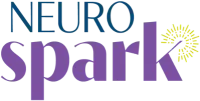A Letter to My MH Colleagues

Dear Fellow Mental Health Providers and MH Colleagues,
WE ARE FAILING.
I know that sounds harsh. But it’s true.
You’re probably wondering where this is coming from. If I’m being completely transparent, maybe some of this is related to my own burnout. But really, I’m frustrated by the stories I’m hearing from our clients.
You can’t be autistic. You have great eye contact.
If you were able to make it through college, you don’t have ADHD.
You don’t have autism. You have depression (or anxiety, or PTSD, or OCD).
If you have the social awareness masking requires, you don’t have autism.
You’re just lazy.
Neurodivergent clients are not getting the care that they need or the care they deserve. Healthcare providers, including mental healthcare providers, minimize, dismiss, and ignore the self-report of clients based on misconceptions and outdated beliefs about autism and ADHD. This gaslighting is used to justify dismissive attitudes and to depict clients as non-credible sources, which in turn often leads clients to doubt their own experiences and identities.
It’s hard to understand how anyone can justify this, but it’s even more difficult to understand since these clients often know more about autism and ADHD in adults, about the female autism phenotype, about masking, and about the outdated research and problems with the way we assess autism and ADHD in adults than their healthcare provider does. The fact is, women, AFAB nonbinary folks, and BIPOC clients are less likely to be diagnosed with autism and/or ADHD due to clinician bias and face additional barriers to receiving adequate healthcare.
We should be better.
But listen, the blame doesn’t lie solely with us. Graduate mental health education and training programs lack formalized instruction about neurodiversity and the presentation of autism and ADHD in adults. The research and empirically validated tools we rely on for assessment are antiquated and largely normed on cis, white heteronormative male children, which means they have low diagnostic accuracy in marginalized communities, including non-cisgender identities, non-heteronormative orientations, women, and those AFAB, BIPOC, etc., etc (I’m looking at you ADOS). I don’t know about you, but my doctoral program didn’t discuss autism in adults at all.
Another problem is that the Diagnostic and Statistical Manual of Mental Disorders (DSM), the ‘bible’ of the mental health field, includes diagnostic criteria associated with the external “symptoms” of autism and ADHD in children. This is because the characteristics of ADHD and autism in late adolescents, adults, and the elderly have been overlooked in research and clinical practice. Most clinicians have a vague understanding at best. Too often, the larger picture is missed when providers focus on the traits of these neurotypes separately, which has led to misdiagnosis, misunderstanding, and failed treatment.
So how can we be better? How can you do your part?
Here are my recommendations:
- Recognize your limitations. If you’re not competent or adequately trained to provide assessment and other support services for autistic, ADHD, or other neurodivergent ADULTS, that’s okay. That’s the point of specialties or niches. Refer them to someone who is. You can find neurodiversity affirming providers at www.ndtherapists.com and https://www.inclusivetherapists.com/.
- Don’t fool yourself into believing that a referral to another provider would be more harmful to a client than seeing a provider who lacks the necessary expertise, knowledge, and training to provide adequate support. Instead, see it as an opportunity to show clients that we have their best interests in mind and will help them find someone who meets their individual needs.
- If you are going to work in this area, seek additional training through continuing education courses. Educate yourself by studying the latest research. Join a group for ND affirming providers. Build a professional network. Engage in supervision and/or consultation.
- Remember, cultural competence applies here too. Research and understand language preferences. Listen to autistic and neurodivergent voices. Read books and listen to podcasts created by neurodivergent individuals. Embrace the neurodiversity movement.
- Rather than being dismissive, praise clients who engage in self-identification / self-diagnosis. Self-identification means clients prioritize their mental health and advocate for themselves, which, as we know, can be extremely difficult as members of marginalized groups. Self-identification also provides a great starting point for collaborative discussion. Believe your clients when they describe their experiences. Acknowledge that the client is the expert of their own experience rather than you, me, or anyone else.
- Choose not to be territorial with clients who self-identify or with other clinicians providing similar services. There are more than enough clients for all of us. Access to care continues to be a problem across mental health and healthcare in general, and more so in highly specialized fields.
This is a love letter. I admire all of you and the work you do so much. This job is difficult—extremely difficult, in fact—but we’re all in this together.
XOXO,
Julie

Julie Landry, PsyD, ABPP
One Spark Can Light a Fire
Diagnosis can be the catalyst for significant momentum. It can represent a turning point for your life, where you can move forward equipped with new knowledge about yourself and a new framework to guide you in your journey.
A formal assessment provides an incredible opportunity to gain knowledge about who you are and how you see the world.



